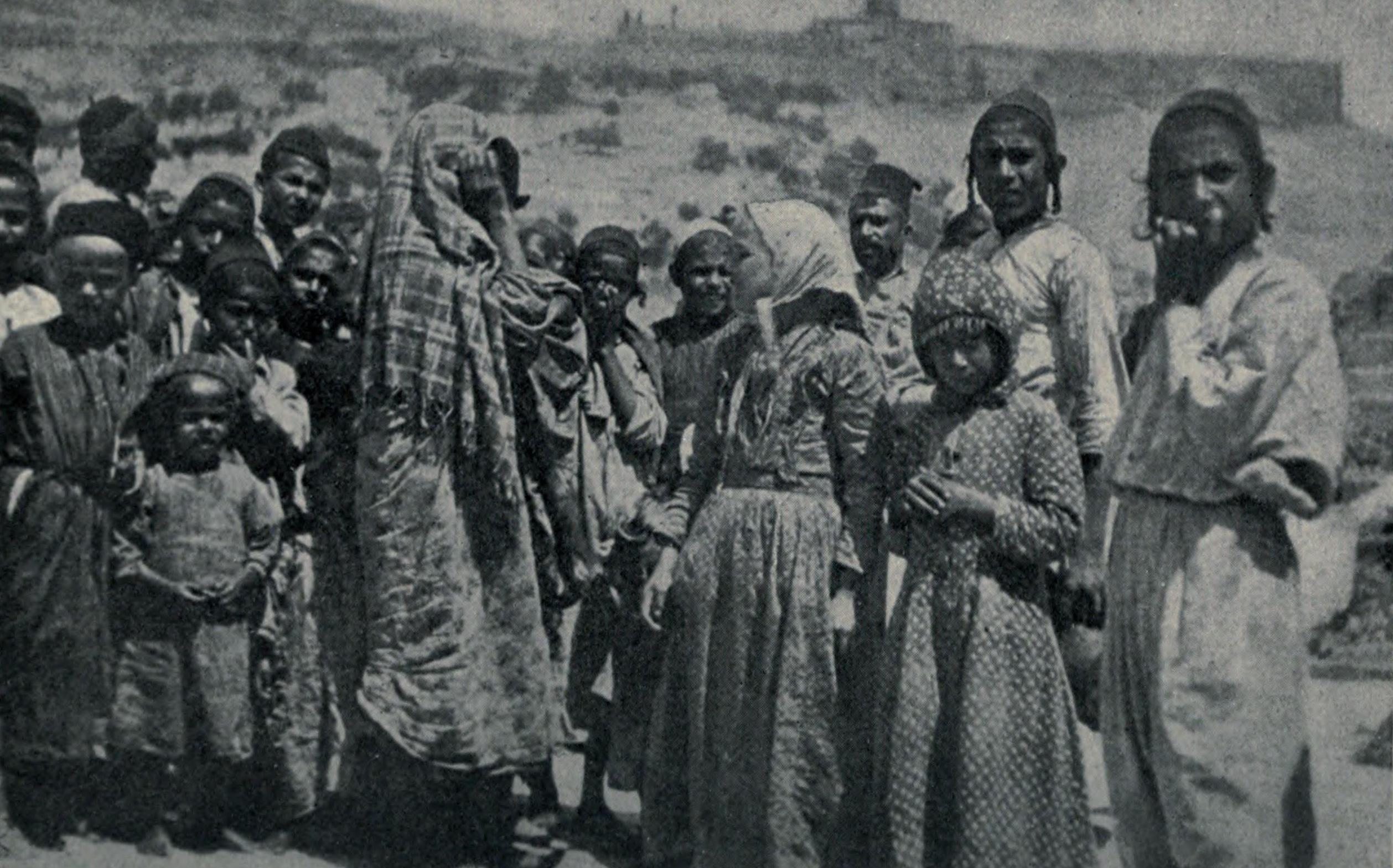|
In Satmar Custody
''In Satmar Custody'' is a 2003 film of the Jaradis, a Yemenite Jewish family, one of many that were brought from Yemen to the US (Monroe, New York) by the Hasidic Satmar Satmar (Yiddish: סאַטמאַר, Hebrew: סאטמר) is a Hasidic group founded in 1905 by Grand Rebbe Joel Teitelbaum, in the city of Szatmárnémeti, Hungary (now Satu Mare in Romania). The group is an offshoot of the Sighet Hasidic dynasty ... community, which advises against immigration to Israel. The story exposes a deep cultural gap between the Yemenite families and the Yiddish Satmar community that became distractive and tragic to families who have traveled thousands of miles to a place with strange rules, norms, morals, and lifestyles. The film follows the life of Yahia and Lauza Jaradi, who were brought from Yemen into the Satmar community. It starts on the day that the Jaradi couple received an urgent phone call notifying that their two-and-a-half-year-old daughter, Hadia, died in a hospital in P ... [...More Info...] [...Related Items...] OR: [Wikipedia] [Google] [Baidu] |
Nitzan Gilady
Nitzan Gilady (also known as Nitzan Giladi; he, ניצן גלעדי) is an Israeli film director who has written, produced and directed the documentary films '' In Satmar Custody'' (2003) and ''Jerusalem Is Proud to Present'' (2008) and '' The Last Enemy'' and " It runs in the Family" (2010). His films have received 13 international awards, participated in over 120 international film festivals and broadcast in prestigious TV channels over the world including Sundance Channel and ZDF-ARTE. His TV work includes: ''Singing to Oblivion - The Story of Miri Aloni'', ''Do Not Call Me Black 2008'' and ''Dark Southern Deal''. The short fiction drama ''Queens Up'' directed by Gilady has participated at the international Jerusalem Film Festival and received an Audience Award at Sedicicorto - Forli International film festival. In 2004, he received a grant for the art of cinema initiated by the Israeli Ministry of Education, Culture and Sport given to outstanding Israeli filmmakers and film ... [...More Info...] [...Related Items...] OR: [Wikipedia] [Google] [Baidu] |
Yemenite Jews
Yemenite Jews or Yemeni Jews or Teimanim (from ''Yehudei Teman''; ar, اليهود اليمنيون) are those Jews who live, or once lived, in Yemen, and their descendants maintaining their customs. Between June 1949 and September 1950, the overwhelming majority of Yemen's Jewish population immigrated to Israel in Operation Magic Carpet. After several waves of persecution throughout Yemen, the vast majority of Yemenite Jews now live in Israel, while smaller communities live in the United States and elsewhere. Only a handful remain in Yemen. The few remaining Jews experience intense, and at times violent, anti-Semitism on a daily basis. Yemenite Jews have a unique religious tradition that distinguishes them from Ashkenazi Jews, Sephardi Jews, and other Jewish groups. They have been described as "the most Jewish of all Jews" and "the ones who have preserved the Hebrew language the best". Yemenite Jews fall within the "Mizrahi" (eastern) category of Jews, though they differ ... [...More Info...] [...Related Items...] OR: [Wikipedia] [Google] [Baidu] |
Hasidic
Hasidism, sometimes spelled Chassidism, and also known as Hasidic Judaism (Ashkenazi Hebrew: חסידות ''Ḥăsīdus'', ; originally, "piety"), is a Jewish religious group that arose as a spiritual revival movement in the territory of contemporary Western Ukraine during the 18th century, and spread rapidly throughout Eastern Europe. Today, most affiliates reside in Israel and the United States. Israel Ben Eliezer, the "Baal Shem Tov", is regarded as its founding father, and his disciples developed and disseminated it. Present-day Hasidism is a sub-group within Haredi Judaism and is noted for its religious conservatism and social seclusion. Its members adhere closely both to Orthodox Jewish practice – with the movement's own unique emphases – and the traditions of Eastern European Jews. Many of the latter, including various special styles of dress and the use of the Yiddish language, are nowadays associated almost exclusively with Hasidism. Hasidic thought draws heavily ... [...More Info...] [...Related Items...] OR: [Wikipedia] [Google] [Baidu] |
Satmar
Satmar (Yiddish: סאַטמאַר, Hebrew: סאטמר) is a Hasidic group founded in 1905 by Grand Rebbe Joel Teitelbaum, in the city of Szatmárnémeti, Hungary (now Satu Mare in Romania). The group is an offshoot of the Sighet Hasidic dynasty. Following World War II, it was re-established in New York. Satmar is the largest Hasidic dynasty in the world, with some 26,000 households. It is characterized by extreme conservatism, complete rejection of modern culture, and fierce anti-Zionism. Satmar sponsors a comprehensive education and media system in Yiddish, and its members use Yiddish as a primary language. The sect also sponsors and leads the Central Rabbinical Congress, which serves as an umbrella organization for other very conservative, anti-Zionist, and mostly Hungarian-descended ultra-Orthodox communities. After Joel Teitelbaum's death in 1979, he was succeeded by his nephew, Moshe Teitelbaum. Since the latter's death in 2006, the dynasty is split between his two sons, ... [...More Info...] [...Related Items...] OR: [Wikipedia] [Google] [Baidu] |
Aliyah
Aliyah (, ; he, עֲלִיָּה ''ʿălīyyā'', ) is the immigration of Jews from Jewish diaspora, the diaspora to, historically, the geographical Land of Israel, which is in the modern era chiefly represented by the Israel, State of Israel. Traditionally described as "the act of going up" (towards the Jerusalem in Judaism, Jewish holy city of Jerusalem), moving to the Land of Israel or "making aliyah" is one of the most basic tenets of Zionism. The opposite action—emigration by Jews from the Land of Israel—is referred to in the Hebrew language as ''yerida'' (). The Law of Return that was passed by the Knesset, Israeli parliament in 1950 gives all diaspora Jews, as well as their children and grandchildren, the right to relocate to Israel and acquire Israeli citizenship on the basis of connecting to their Jewish identity. For much of Jewish history, their history, most Jews have lived in the diaspora outside of the Land of Israel due to Jewish military history, various hi ... [...More Info...] [...Related Items...] OR: [Wikipedia] [Google] [Baidu] |
Paterson, New Jersey
Paterson ( ) is the largest City (New Jersey), city in and the county seat of Passaic County, New Jersey, Passaic County, in the U.S. state of New Jersey.New Jersey County Map New Jersey Department of State. Accessed July 10, 2017. As of the 2020 United States census, its population was 159,732, rendering it New Jersey's List of municipalities in New Jersey, third-most-populous city. The United States Census Bureau, Census Bureau's Population Estimates Program calculated that the city's population was 157,794 in 2021, ranking the city as the List of United States cities by population, 163rd-most-populous in the country. Paterson is known as the Silk City for its dominant role in silk production during the latter half of the 19th century.Thoma ... [...More Info...] [...Related Items...] OR: [Wikipedia] [Google] [Baidu] |
2003 Films
The year 2003 in film involved some significant events. Highest-grossing films The top 10 films released in 2003 by worldwide gross are as follows: '' The Lord of the Rings: The Return of the King'' grossed more than $1.14 billion, making it the highest-grossing film in 2003 worldwide and in North America and the second-highest-grossing film up to that time. It was also the second film to surpass the billion-dollar milestone after ''Titanic'' in 1997. '' Finding Nemo'' was the highest-grossing animated movie of all time until being overtaken by ''Shrek 2'' in 2004. Events * February 24: '' The Pianist'', directed by Roman Polanski, wins 7 César Awards: Best Film, Best Director, Best Actor, Best Sound, Best Production Design, Best Music and Best Cinematography. * June 12: Gregory Peck dies of bronchopneumonia. * June 29: Katharine Hepburn dies of cardiac arrest. * November 17: Arnold Schwarzenegger sworn in as Governor of California. * December 22: Both of the m ... [...More Info...] [...Related Items...] OR: [Wikipedia] [Google] [Baidu] |
Israeli Independent Films
Israeli may refer to: * Something of, from, or related to the State of Israel * Israelis, citizens or permanent residents of the State of Israel * Modern Hebrew, a language * ''Israeli'' (newspaper), published from 2006 to 2008 * Guni Israeli (born 1984), Israeli basketball player See also * Israelites, the ancient people of the Land of Israel * List of Israelis Israelis ( he, ישראלים ''Yiśraʾelim'') are the citizens or permanent residents of the State of Israel, a multiethnic state populated by people of different ethnic backgrounds. The largest ethnic groups in Israel are Jews (75%), foll ... {{disambiguation Language and nationality disambiguation pages ... [...More Info...] [...Related Items...] OR: [Wikipedia] [Google] [Baidu] |
2000s Hebrew-language Films
S, or s, is the nineteenth letter in the Latin alphabet, used in the modern English alphabet, the alphabets of other western European languages and others worldwide. Its name in English is ''ess'' (pronounced ), plural ''esses''. History Origin Northwest Semitic šîn represented a voiceless postalveolar fricative (as in 'ip'). It originated most likely as a pictogram of a tooth () and represented the phoneme via the acrophonic principle. Ancient Greek did not have a phoneme, so the derived Greek letter sigma () came to represent the voiceless alveolar sibilant . While the letter shape Σ continues Phoenician ''šîn'', its name ''sigma'' is taken from the letter ''samekh'', while the shape and position of ''samekh'' but name of ''šîn'' is continued in the '' xi''. Within Greek, the name of ''sigma'' was influenced by its association with the Greek word (earlier ) "to hiss". The original name of the letter "sigma" may have been ''san'', but due to the complica ... [...More Info...] [...Related Items...] OR: [Wikipedia] [Google] [Baidu] |
Satmar (Hasidic Dynasty)
Satmar (Yiddish: סאַטמאַר, Hebrew: סאטמר) is a Hasidic group founded in 1905 by Grand Rebbe Joel Teitelbaum, in the city of Szatmárnémeti, Hungary (now Satu Mare in Romania). The group is an offshoot of the Sighet Hasidic dynasty. Following World War II, it was re-established in New York. Satmar is the largest Hasidic dynasty in the world, with some 26,000 households. It is characterized by extreme conservatism, complete rejection of modern culture, and fierce anti-Zionism. Satmar sponsors a comprehensive education and media system in Yiddish, and its members use Yiddish as a primary language. The sect also sponsors and leads the Central Rabbinical Congress, which serves as an umbrella organization for other very conservative, anti-Zionist, and mostly Hungarian-descended ultra-Orthodox communities. After Joel Teitelbaum's death in 1979, he was succeeded by his nephew, Moshe Teitelbaum. Since the latter's death in 2006, the dynasty is split between his two sons, ... [...More Info...] [...Related Items...] OR: [Wikipedia] [Google] [Baidu] |
Yemeni-American Culture
Yemeni Americans are Americans of Yemeni ancestry. According to an estimate of 2010, more than 100,000 Yemenis live in the United States. History Although it is unknown when Yemenis first arrived, it is believed that Yemenis were immigrating to the U.S. after 1869, and are recorded in the 1890s. Some Yemenis gained U.S. citizenship by fighting in World War I and World War II. Yemeni immigrants settled in existing Lebanese communities in cities like New York. They were outcast as Muslims, as the Lebanese communities were predominantly Christian, as were Syrian and Palestinian communities. After becoming situated, many Yemenis traveled westward for better job opportunities. In many places of United States, such as Chicago, Brooklyn (New York), and South Dearborn (Michigan), the first Yemeni entrepreneurs were owners of cafes and liquor stores. However, these companies are not characteristic of Yemeni culture, and it is likely that they have been owners of cafes under the infl ... [...More Info...] [...Related Items...] OR: [Wikipedia] [Google] [Baidu] |





